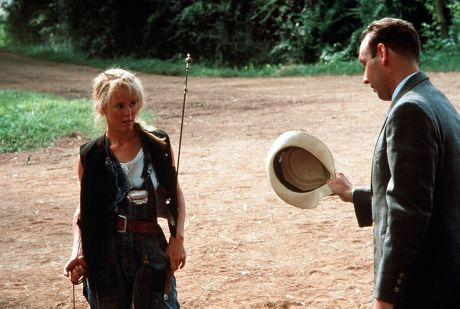
More than three decades after its release, Fried Green Tomatoes is once again stirring conversations, touching hearts, and proving that good stories — like good recipes — only get better with time.
Now streaming on Netflix in a newly restored version, the 1991 film is being rediscovered by a generation hungry for stories of connection, identity, and resilience. What was once a modest Southern tale about friendship and memory has grown into a cultural touchstone, celebrated not only for its warmth but for the quiet bravery embedded within its narrative.
A Story That Simmered Slowly — and Left a Lasting Flavor
Set between the dusty streets of 1920s Alabama and the stifling suburban kitchens of the 1980s, Fried Green Tomatoes intertwines the lives of four women across two eras. Evelyn Couch (Kathy Bates), a meek, overlooked housewife, finds herself transformed by the stories told by Ninny Threadgoode (Jessica Tandy), a charming elderly woman she meets in a nursing home.
Through Ninny’s recollections, viewers are transported to the small town of Whistle Stop, where the rebellious Idgie Threadgoode (Mary Stuart Masterson) and the gentle, steadfast Ruth Jamison (Mary-Louise Parker) defy societal expectations to build a life and business together — all while navigating love, tragedy, and the rigid codes of the Old South.
But beyond its period costumes and picturesque cafe settings, the film hides a bolder subtext: a coded queer love story, a critique of gender roles, and a radical call to self-empowerment, all delivered with Southern charm and a spoonful of sass.
The Feminist Film That Didn’t Announce Itself
Released in 1991, Fried Green Tomatoes was both acclaimed and underestimated. Critics praised its performances and sentimentality, while others missed the deeper implications. The relationship between Idgie and Ruth, while never overtly labeled romantic in the film, was unmistakably intimate — a decision that reflected the constraints of the time but also allowed the story to reach a wider audience.
Today, in a post-Carol and Portrait of a Lady on Fire era, younger viewers are seeing through the coded language and embracing the film as an early, if cautious, piece of lesbian cinema. Online forums and think pieces are buzzing with discussions: Was it love? Was it fear of backlash? Was it genius restraint?
“Watching Fried Green Tomatoes now feels like uncovering a hidden love letter from the past,” wrote one viewer on Letterboxd. “It says so much without ever raising its voice.”
Why Now?

The film’s revival couldn’t come at a more fitting moment. As media increasingly seeks to spotlight untold stories, female-led narratives, and LGBTQ+ history, Fried Green Tomatoes offers a perfect intersection of all three. It’s also an antidote to the cynicism of modern storytelling — a film that believes in kindness, in redemption, and in the quiet rebellion of living truthfully.
Netflix’s decision to remaster and promote the film signals a broader trend in streaming culture: the return of “wholesome radicalism,” where stories of ordinary women doing extraordinary things are once again given center stage.
And it’s not just nostalgia driving this movement. The film’s themes — domestic dissatisfaction, gendered expectations, found family, and personal awakening — feel eerily contemporary. Evelyn Couch’s journey from passive to empowered resonates in a world still grappling with issues of body image, ageism, and female invisibility.
A Potential Return to Whistle Stop?
With the streaming success of the restored film, rumors have begun circulating about a potential Fried Green Tomatoes series in development. According to sources close to Universal Television, early talks are underway for a limited series reboot that would expand on the lives of Whistle Stop’s residents — possibly picking up in the 1950s or flashing forward to new characters grappling with modern echoes of old struggles.
If done right, the series could offer a chance to revisit familiar faces and stories while embracing the themes the original film only hinted at. This time, creators may have the freedom to be more explicit about Idgie and Ruth’s relationship, and to more directly address the racial and social complexities of their world.
A Film That Never Lost Its Heart
In the end, Fried Green Tomatoes endures because it never tried to be loud or flashy. It is a story built on small acts of courage — leaving a bad marriage, telling the truth, showing up for someone again and again. It celebrates the women who refused to be forgotten, the bonds that form in unlikely places, and the healing that comes from hearing someone say, “You mattered.”
So whether you’re watching it for the first time, curled up with a cup of coffee and curiosity, or revisiting it with fondness and fresh eyes, Fried Green Tomatoes still offers a warm seat at the table.
Because some stories — like some recipes — aren’t just meant to be remembered.
They’re meant to be passed down.
